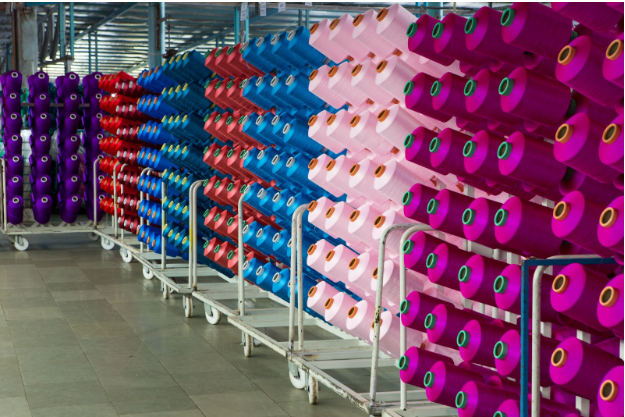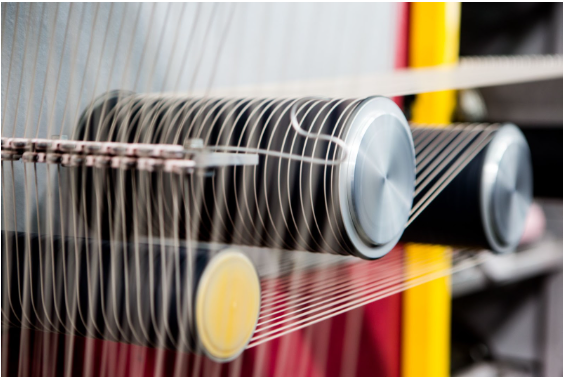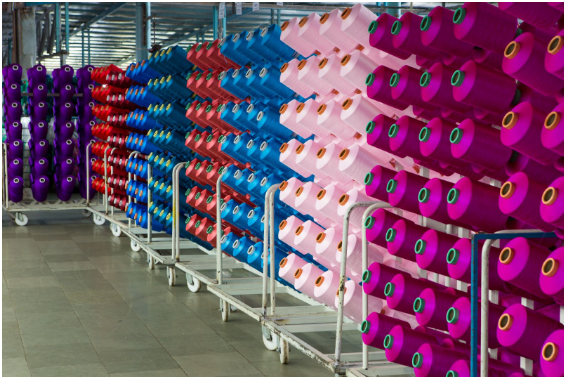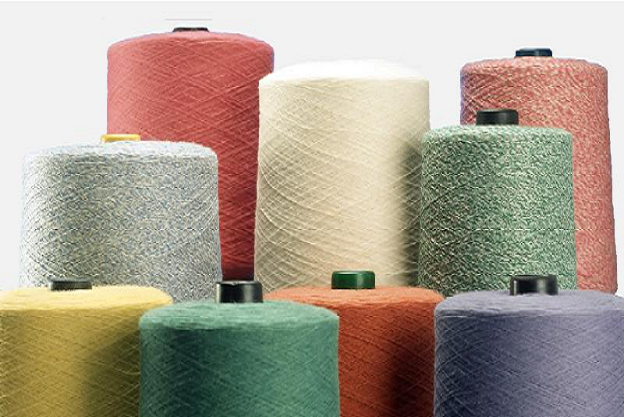Polyester yarn has become a staple in the textile industry, offering a versatile and durable solution for a wide range of applications. Its popularity stems from its unique properties, such as strength, elasticity, and resistance to environmental factors.
What is Polyester Yarn?
Polyester yarn is a synthetic fiber made from polymers derived from petroleum-based products. It is created through a process of polymerization, where raw materials like ethylene glycol and terephthalic acid are melted, spun into filaments, and then processed into yarn. Polyester yarn can be manufactured in various forms, including textured, spun, and filament yarns, each suited for specific purposes.
Key Features of Polyester Yarn
1. Durability:
Polyester yarn is known for its high tensile strength, making it resistant to wear and tear.
2. Elasticity:
Its flexibility ensures that fabrics made from polyester retain their shape, even after repeated use.
3. Moisture Resistance:
Polyester yarn does not absorb water, making it quick-drying and resistant to mildew.
4. Color Retention:
It holds dye exceptionally well, ensuring vibrant, long-lasting colors.
5. Low Maintenance:
Fabrics made from polyester yarn are easy to wash, wrinkle-resistant, and do not require ironing.
6. Eco-Friendly Options:
Recycled polyester yarns, such as Polycycle™, provide a sustainable alternative, reducing environmental impact.
Uses of Polyester Yarn
Polyester yarn is incredibly versatile and finds applications across various industries. Here’s a closer look at its common uses:
1. Fashion and Apparel
Polyester yarn is widely used in clothing due to its durability and ability to blend with natural fibers like cotton and wool. It is commonly found in sportswear, activewear, and casual wear, thanks to its lightweight and moisture-wicking properties. Polyester-blended fabrics are also popular for their wrinkle resistance and ease of care.
2. Home Textiles
In-home furnishings, polyester yarn plays a significant role in creating products like curtains, upholstery, bed linens, and carpets. Its strength and stain-resistant qualities make it ideal for high-traffic areas, while its ability to hold vibrant colors adds aesthetic appeal to home décor.
3. Industrial Applications
The strength and versatility of polyester yarn make it suitable for industrial uses such as conveyor belts, safety harnesses, and ropes. In construction, it is used in geotextiles for soil stabilization and erosion control.
4. Automotive Industry
Polyester yarn is extensively used in car interiors, including seat covers, carpets, and airbags. Its durability and resistance to UV rays ensure longevity and reliability in automotive applications.
5. Outdoor Gear and Accessories
Polyester yarn is a popular choice for outdoor products such as tents, backpacks, and ropes due to its moisture resistance and ability to withstand harsh weather conditions.
6. Medical and Technical Textiles
In the healthcare sector, polyester yarn is used to create medical gowns, bandages, and surgical drapes. Its lightweight and non-absorbent nature make it suitable for technical textiles as well.
Advantages of Using Polyester Yarn
1. Cost-Effective:
Polyester yarn is generally more affordable compared to natural fibers like silk or wool, making it an economical choice for manufacturers.
2. Blending Capability:
It blends seamlessly with other fibers, enhancing the properties of fabrics and expanding its usability.
3. Sustainability:
With advancements in recycling technology, polyester yarn can now be made from recycled plastic bottles, contributing to a circular economy.
Also Read: Why AYM Syntex is the Best Choice for Polyester Yarn?
Conclusion
Polyester yarn is a versatile and essential material in the modern textile industry. Its durability, flexibility, and wide range of applications make it a preferred choice for manufacturers and consumers alike. From fashion and home textiles to industrial and medical uses, polyester yarn continues to prove its value across various sectors.
With eco-friendly options like recycled polyester gaining traction, the future of polyester yarn looks both promising and sustainable. Whether you’re a manufacturer, supplier, or end-user, understanding the benefits and uses of polyester yarn can help you make informed decisions that align with your needs and values.




